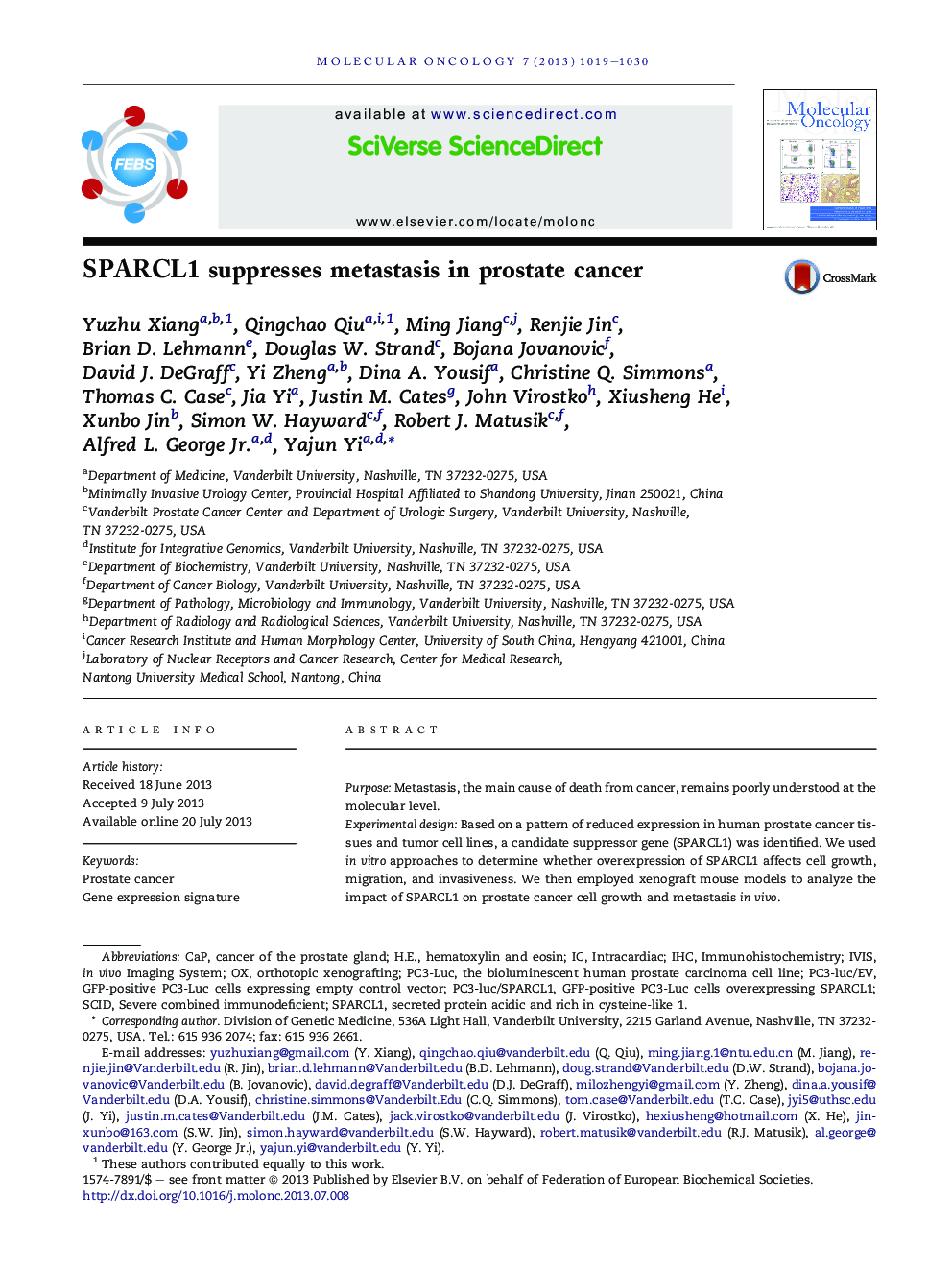| Article ID | Journal | Published Year | Pages | File Type |
|---|---|---|---|---|
| 2145614 | Molecular Oncology | 2013 | 12 Pages |
•We identify a candidate suppressor gene (SPARCL1) from a cancer prognostic signature.•We examine expression patterns of SPARCL1 in human prostate tissues and cell lines.•Overexpression of SPARCL1 does not affect tumor cell growth in vitro.•SPARCL1 suppresses tumor cell migration, invasiveness, and metastasis.
PurposeMetastasis, the main cause of death from cancer, remains poorly understood at the molecular level.Experimental designBased on a pattern of reduced expression in human prostate cancer tissues and tumor cell lines, a candidate suppressor gene (SPARCL1) was identified. We used in vitro approaches to determine whether overexpression of SPARCL1 affects cell growth, migration, and invasiveness. We then employed xenograft mouse models to analyze the impact of SPARCL1 on prostate cancer cell growth and metastasis in vivo.ResultsSPARCL1 expression did not inhibit tumor cell proliferation in vitro. By contrast, SPARCL1 did suppress tumor cell migration and invasiveness in vitro and tumor metastatic growth in vivo, conferring improved survival in xenograft mouse models.ConclusionsWe present the first in vivo data suggesting that SPARCL1 suppresses metastasis of prostate cancer.
